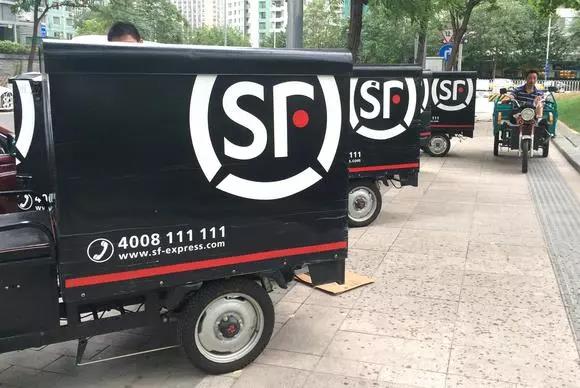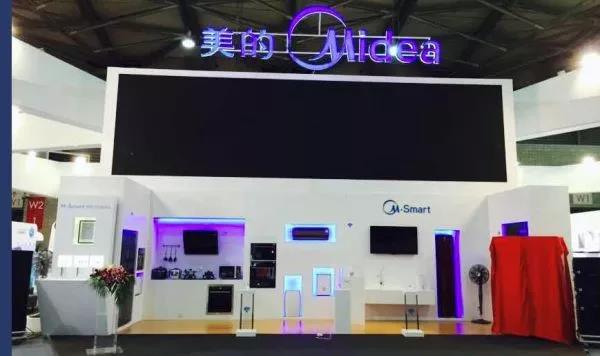
EDWARD TSE and ALAN CHAN
September 28, 2017 7:14 pm JST
Lower-profile entrepreneurs are achieving exponential growth after humble starts
A growing number of privately owned Chinese companies have been achieving exponential growth and successfully transforming their businesses. Many of them however remain relatively unknown in the West. Unlike famous Chinese internet companies like Alibaba Group Holding and Tencent Holdings and the latest crop of startups with skyrocketing valuations, these less prominent companies are comparatively down-to-earth and generally had humble beginnings but now boast solid business models.
SF Express, Oppo, Vivo and Midea Group are prime examples of this group. Each boasts a unique entrepreneurial story and has been relentlessly pursuing innovative strategies to create new markets and redefine the rules of the game for their sectors. Understanding these companies’ growth and origins can shed light on the complex, multi-dimensional and dynamic context of business in China.
SF Express, dubbed the “FedEx of China,” is a delivery-services company based in Shenzhen. At the age of seven, founder Wang Wei migrated from Shanghai to Hong Kong. After he graduated high school, he began working at a small print shop back across the border in Guangdong Province.
While sending print samples to clients in Hong Kong, he quickly noticed the growing demand for cross-border delivery. At the age of 22, he convinced his father to give him a 100,000 yuan ($15,000) loan and founded SF Express with just six employees and one delivery van.
Wang’s business has grown exponentially since its 1993 founding, riding the development of trade around the Shenzhen Special Economic Zone and other areas of the Pearl River Delta. During the Severe Acute Respiratory Syndrome outbreak in 2003, Wang seized the opportunity to buy five planes from cargo airline Yangtze River Express amid the slowdown in the aviation industry and then secured a license to run charter flights to keep deliveries flowing. The subsequent boom in e-commerce saw demand for timely package delivery services rise yet faster.
Today SF Express is a leading market player, with more than 13,000 service points, 400,000 employees, and a fleet of 15,000 motor vehicles and 36 cargo aircraft. Its revenue climbed 21% last year to 57 billion yuan, while net profit soared 112% to 4.18 billion yuan.
This year has been even more dynamic for SF Express. In February, it completed a backdoor listing on the Shenzhen Stock Exchange via an asset swap with defunct cable manufacturer Maanshan Dintai Rare Earth & New Materials and soon after could claim the highest market capitalization of any company on the tech-heavy exchange.
In May, SF Express announced a joint venture with global package delivery company UPS for services from China to the U.S. In June, SF Express completed its first commercial deliveries using drones after receiving a Chinese airspace license. Then on Aug. 22, it raised 8 billion yuan through a share placement to fund growth initiatives.
Smartphone disruptors
Leading smartphone brands Oppo and Vivo are both based in Guangdong and owned by the same parent company, BBK Electronics, a consumer electronics manufacturer founded in 1995 by entrepreneur Duan Yongping. Over the years, BBK Electronics has produced a wide range of products, from corded phones to household appliances and hand-held language learning devices.

Source: Baidu.com
Oppo was originally founded in 2004 by Duan and Tony Chen, who remains chief executive. Before entering the smartphone business in 2008, Oppo sold DVD and Blu-ray Disc players. Vivo was founded in 2009 by Duan and Shen Wei, who also still serves as chief executive. It entered the smartphone market in 2011 with handsets featuring slim design and high-quality sound.
Today both Oppo and Vivo target young professionals and students in secondary Chinese cities. Both brands feature high-end specifications with modern industrial designs that are comparable to Apple’s latest iPhone models. They are positioned with compelling selling points such as fast charging, large memory capacity and long battery life and boast various custom features for selfie and music enthusiasts.
Both brands rely heavily on traditional retail and distribution channels in secondary cities, leveraging the vast sales network of parent BBK Electronics. For example, Oppo has a presence in more than 200,000 retail outlets across China, with flagship stores in the biggest cities to showcase its models’ high-end image. It also gives attractive incentives to retail partners to push its brand.
In addition, they have invested heavily in traditional marketing, such as product placements, outdoor advertising, celebrity endorsements and television show sponsorships. Oppo is an official global partner for “America’s Next Top Model” and Vivo is an official sponsor of the 2018 and 2022 soccer World Cup tournaments. These marketing efforts are so successful that over half of consumers surveyed in secondary Chinese cities mistook the two brands for foreign companies.
In 2016, Oppo shipped 78.4 million smartphones, surpassing Huawei Technologies, Samsung Electronics and Apple to lead all brands in global totals. Vivo came in third, with 69.2 million smartphones shipped and a market share of 14.8%.
Smarter homes
Many industries in China are undergoing disruptive digital transformation, consumer appliances included.
Midea, founded in 1968 in Guangdong, has in recent years created an ecosystem of digital capabilities to capture new opportunities. Last year, Midea generated more than 10 billion yuan in sales on Tmall, Alibaba’s market-leading business-to-consumer online platform. This past January, Midea announced a strategic partnership with Tmall rival JD.com, aiming to deepen cooperation in the fields of intelligent home appliances, smart homes, channel expansion, personalized products and big data analytics, as well as a strategic partnership with Tencent’s QQ social network to collaborate on the internet of things, cloud technologies and smart home appliances.

Source: Baidu.com
Midea is also making big bets on industrial transformation. In 2016, it completed the 4.4 billion euro ($5.3 billion) acquisition of a 94.55% stake in Kuka, a leading German robotics manufacturer. It is aiming to leverage Kuka’s leading technological capabilities in automation, robotics and logistics solutions. This past February, Midea also acquired 50% of Servotronix, an Israeli automation solutions company, for $170 million.
Midea is now aggressively pushing forward a new “smart home + smart manufacturing” strategy, with the goal of becoming a “world leading technology group, focusing on consumer electronics, air conditioners, robotics and automation.” Midea has already invested 5 billion yuan in building smart factories with advanced automation and data exchange in a number of Chinese cities, utilizing a total of 1,500 robots. It ranked 175th on a European Commission list of the world’s top investors in research and development and was the only Chinese home appliance producer to make the list of 2,500 companies.
The growth mentality and entrepreneurial spirit of companies like Midea, SF Express and BBK should be an inspiration to both local and foreign business leaders. The visionary entrepreneurs who founded companies like these excel in speed, agility and adaptability and are grabbing new opportunities amid market discontinuities and spotting unaddressed needs. They are relentlessly identifying new strategic growth areas through fearless experimentation, jumping over capability gaps and charging across traditional industry boundaries, carving a path distinct from core competence-focused players and from diversified conglomerates such as Dalian Wanda Group.
China is no longer just a fringe or emerging market for multinational companies but increasingly at the core of their global strategies. The proliferation of technology enablers and intense competition will drive further development of business models and technological innovation. With China’s gradual transition from a planned economy to a market-based one, new opportunities will continue to emerge and be identified.
China is increasingly becoming a source of inspiration for new intellectual capital in strategy and management science. This unprecedented phenomenon, as shown by the growth stories of SF Express, Oppo, Vivo, Midea and many other similar organizations, will require the wider business community to look at organizations in new ways.
Edward Tse is founder and CEO of Gao Feng Advisory Co., a global strategy and management consulting firm with roots in China.
Alan Chan is a senior consultant of the firm.

